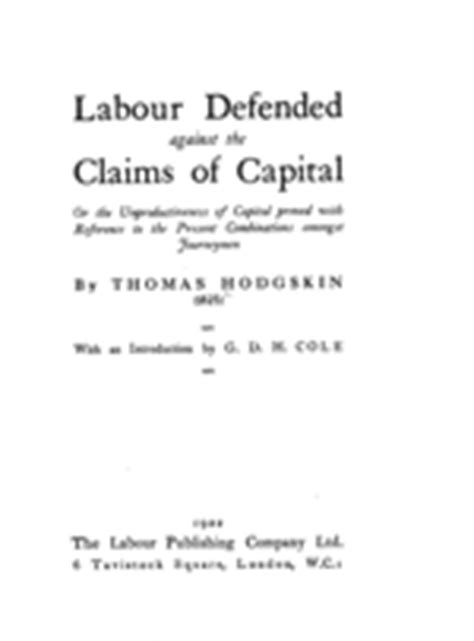A Quote by Thomas I. Emerson
The Right of all members of society to form their own beliefs and communicate them freely to others must be regarded as an essential principle of a democratically organized society.
Related Quotes
I look in a right of property - on the right of individuals, to have and to own, for their own separate and selfish use and enjoyments, the produce of their own industry, with power freely to dispose of the whole of that in the manner most agreeable to themselves, as essential to the welfare and even to the continued existence of society.
The essence of the modern state is that the universal be bound up with the complete freedom of its particular members and with private well-being, that thus the interests of family and civil society must concentrate themselves on the state. It is only when both these moments subsist in their strength that the state can be regarded as articulated and genuinely organized.
The organized labor movement as it is constituted today is as much a concomitant of a capitalist economy as is capital. Organized labor is predicated upon the basic premise of collective bargaining between employers and employees. This premise can obtain only for an employer-employee type of society. If the labor movement is to maintain its own identity and security, it must of necessity protect that kind of society.
Karl Marx left it to others to find the way beyond capitalism to a higher form of society. He saw his role as giving them as accurate a theory as he could of how capitalism works, which would also show them the reasons why it needs to be abolished and replaced by a freer and more human form of society.
The right of a nation to determine its own form of government does not include the right to establish a slave society (that is, to legalize the enslavement of some men by others). There is no such thing as "the right to enslave." A nation can do it, just as a man can become a criminal- but neither can do it by right.
Groupings of people that get together, think things through, come out to plan and so on, like unions or true political organizations, they've disintegrated. And people tend to be atomized - you get down to a society based on social units based on an atom - an atomic element - which is a person and their computer. Not a society that is going to be able to function freely and democratically. The tendency is there; it doesn't have to be, but its something to worry about.
For us democracy is a question of human dignity. And human dignity is political freedom, the right to freely express opinion and the right to be allowed to criticise and form opinions. Human dignity is the right to health, work, education and social welfare. Human dignity is the right and the practical possibility to shape the future with others. These rights, the rights of democracy, are not reserved for a select group within society, they are the rights of all the people.
There's just so many facets, I think, of the ignorance in our society that have to be corrected if we're really going to have a democratic society and a society that is just and that respects all of the members of this society regardless of who they are, what color they may be, what sexual orientation that they have or what gender, you know, they happen to be.
If then a practical end must be assigned to a University course, I say it is that of training good members of society... It is the education which gives a man a clear, conscious view of their own opinions and judgements, a truth in developing them, an eloquence in expressing them, and a force in urging them. It teaches him to see things as they are, to go right to the point, to disentangle a skein of thought to detect what is sophistical and to discard what is irrelevant.


































